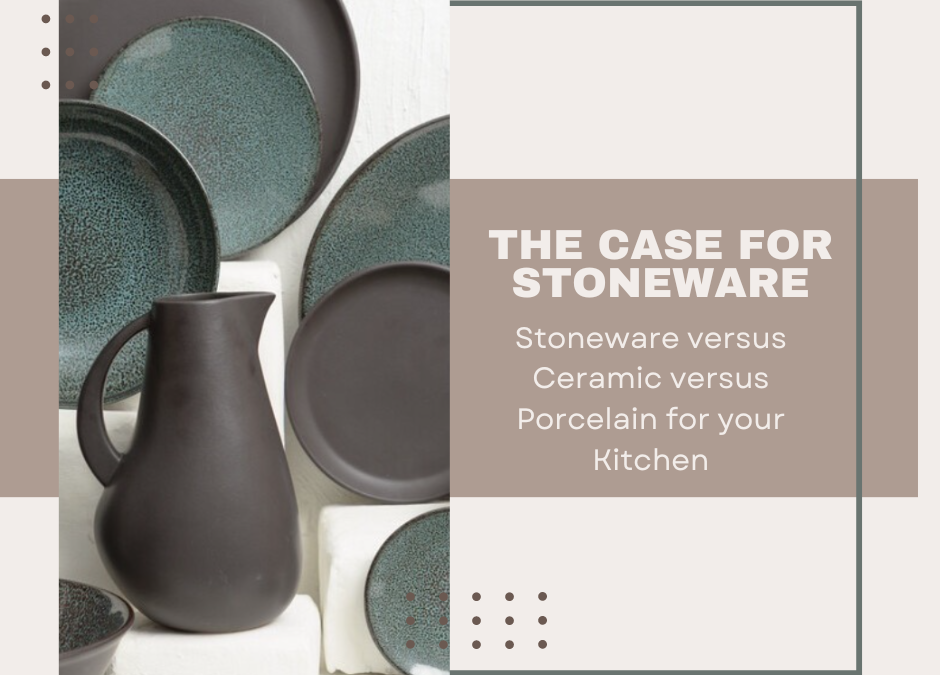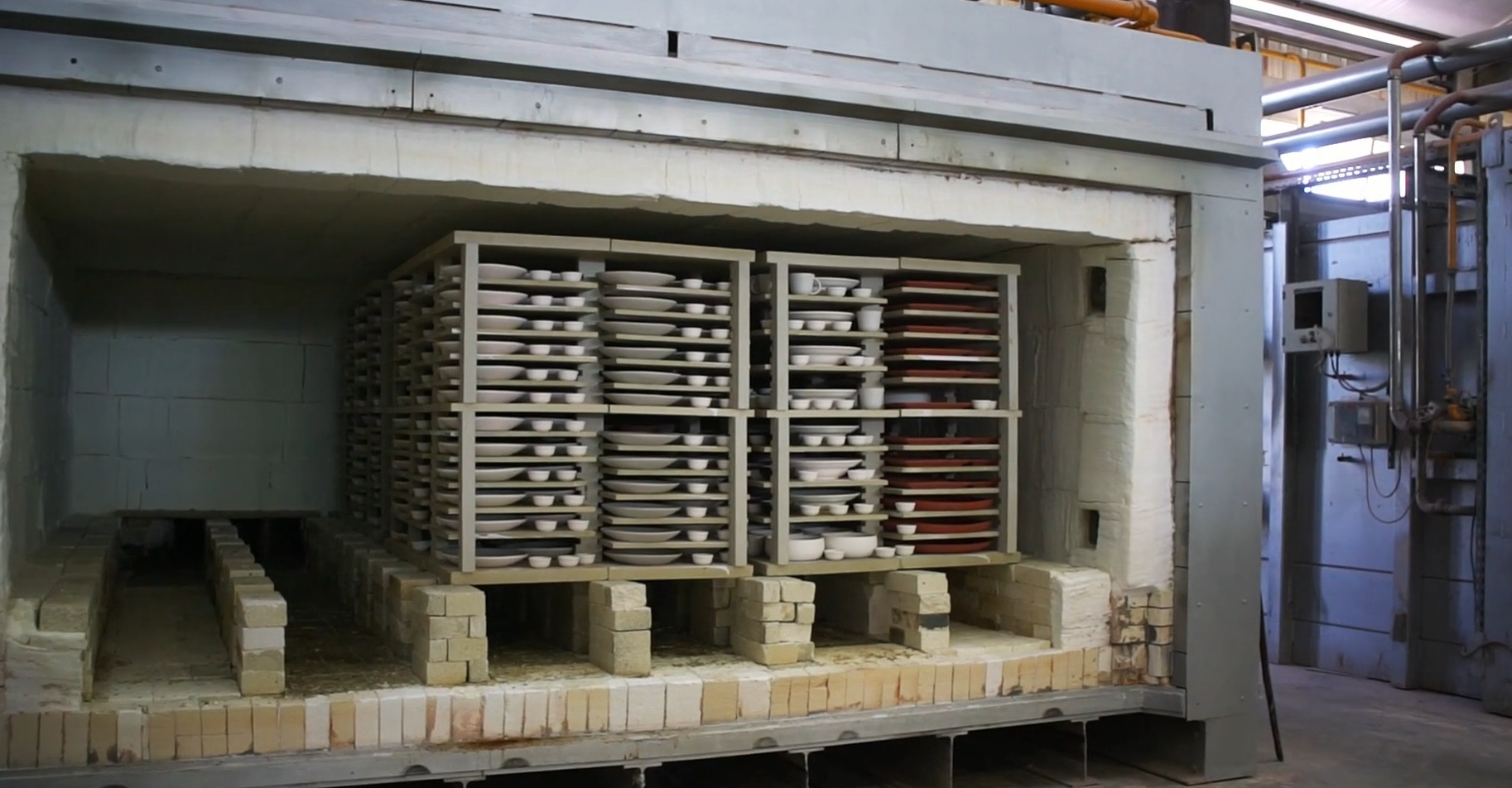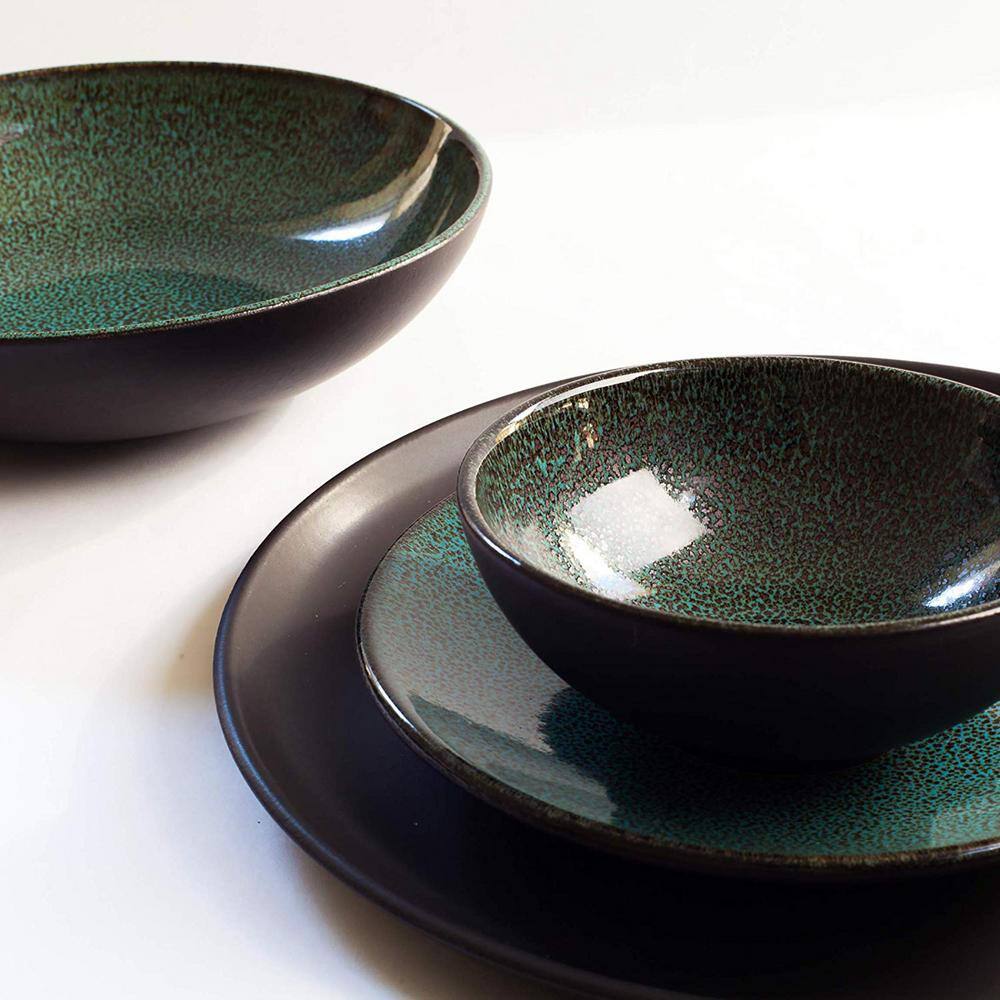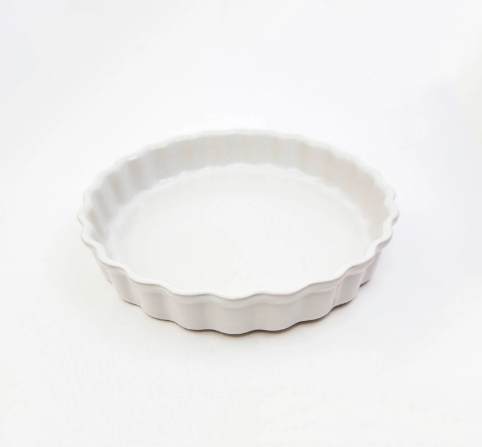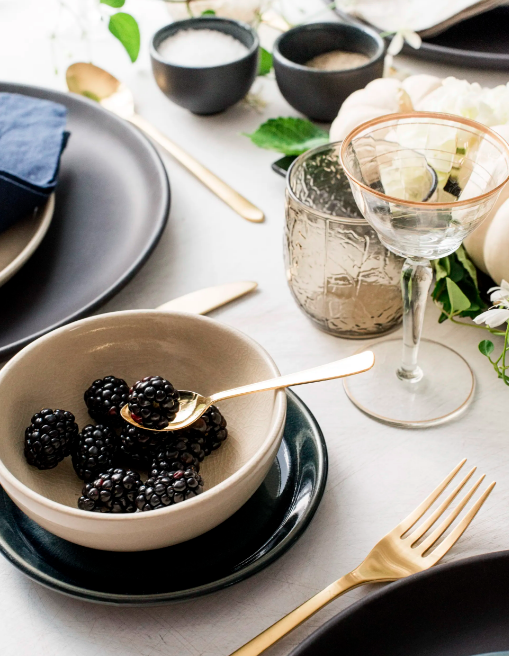In the world of pottery and dinnerware, there are three heavyweight contenders: stoneware, ceramic, and porcelain. Each material has its unique characteristics, but when it comes to durability, versatility, and aesthetics, stoneware dishes emerge as the clear winner. In this blog post, we’ll explore the differences between stoneware, ceramic, and porcelain, and delve into why stoneware stands out as the best choice.
The terms stoneware, ceramic, and porcelain are really all types of ceramics. But the words are a bit more blurred than that when you consider the craft, quality, origin, look, feel, and durability of the pieces.
Let’s do a quick description of each:
Stoneware
Stoneware is a type of ceramic that’s fired at high temperatures, typically between 2150°F and 2330°F (1175°C to 1280°C). This firing process results in a dense, durable material with a slightly coarse texture. Stoneware is known for its earthy, rustic appearance and is often glazed to enhance its aesthetic appeal. Stoneware dishes, serving bowls, stoneware mugs and other products on our website are all stoneware, made from clay and fired at high temperatures. Stoneware is thicker and more durable than other ceramics and has better heat retention.
Ceramic
Ceramic is a broad term that encompasses various types of clay-based products, including earthenware, stoneware, and porcelain. You see how stoneware is included in the ceramics category? The reason is that ceramics is a general term for pottery made from earthen materials like clay and other materials. Stoneware is different in that it is made from non-porous clay, making it thicker, more heat resistant and more durable. Generally, ceramic refers to any object made from clay that’s been shaped and fired. While ceramic items can vary widely in terms of density, strength, and appearance, they typically have a more porous structure compared to stoneware and porcelain.
Porcelain
Porcelain is a type of ceramic that’s made from fine, white clay called kaolin. It’s fired at extremely high temperatures, around 2300°F to 2650°F (1260°C to 1450°C), resulting in a non-porous, glass-like material. Porcelain is prized for its delicate appearance, translucency, and chip resistance.
The Case for Stoneware
Now that we’ve outlined the differences between stoneware, ceramic, and porcelain, let’s explore why stoneware is the superior choice:
Durability
Stoneware is incredibly durable, thanks to its dense structure and high firing temperatures. Unlike ceramic and porcelain, stoneware is less prone to chipping, cracking, and breaking, making it ideal for everyday use. Whether you’re serving up hearty stews or delicate desserts, stoneware dishes and stoneware baking pans can handle the rigors of daily life with ease.
Versatility
One of the standout features of stoneware dishes is versatility. It’s suitable for use in the oven, microwave, dishwasher, and freezer, making it a practical choice for modern kitchens. From baking casseroles to reheating leftovers, stoneware seamlessly transitions from cooking to serving to storage, simplifying meal prep and cleanup.
Aesthetic Appeal
While stoneware is prized for its durability and functionality, it’s also renowned for its rustic charm and natural beauty. The slightly rough texture and earthy tones of stoneware add warmth and character to any table setting. Whether you prefer a minimalist aesthetic or a more eclectic vibe, stoneware complements a wide range of decor styles.
Heat Retention
Another advantage of stoneware is its excellent heat retention properties. Once heated, stoneware retains heat evenly, keeping your food warm for longer periods. This makes it perfect for serving dishes that benefit from staying hot, such as soups, stews, and casseroles.
Eco-Friendly
Stoneware is a sustainable choice for conscientious consumers. Unlike disposable paper or plastic dinnerware, stoneware is designed to last a lifetime with proper care. By investing in high-quality stoneware, you can reduce your environmental footprint and minimize waste.
While ceramic and porcelain certainly have their merits, stoneware dishes and stoneware bakeware emerge as the clear winners when it comes to durability, versatility, and aesthetic appeal. Taking this further, Carthage stoneware has all of these qualities and is hand-crafted by artisans in Tunisia. Stoneware dinner sets that are crafted following ethical fair-trade standards lay the foundation for your table.
Whether you’re hosting a dinner party or enjoying a cozy meal at home, stoneware plates, stoneware bowls, and stoneware mugs provide the perfect combination of style and functionality. With its timeless beauty and long-lasting durability, stoneware dishes are truly the ultimate choice for discerning home cooks and entertainers alike.


